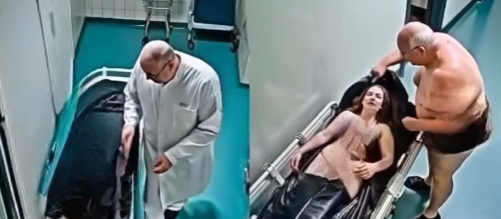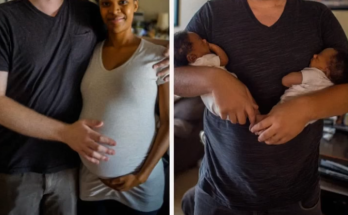
When Instincts Raise Questions: Reflecting on a Loved One’s Medical Experience
Life often presents us with moments that are difficult to fully understand in the moment—moments that leave us with questions even after the immediate challenge has passed. That’s the position I find myself in now. While my girlfriend is steadily recovering from a recent surgery, I can’t shake a sense of unease surrounding how the situation unfolded. These feelings haven’t stemmed from the medical outcome, but rather from the sequence of events leading up to the procedure—events that have left me quietly wondering whether everything truly went as smoothly behind the scenes as it appeared on the surface.
Not long ago, my girlfriend underwent what was described as a fairly routine leg surgery. The initial consultation went well, the diagnosis seemed straightforward, and the procedure itself was not considered high-risk. We both entered the situation feeling relatively confident, thanks in part to the professionalism of the medical team and the clarity of communication during the early stages. Everything pointed to a standard hospital experience, with a clear timeline and expected recovery plan.
However, things began to feel less certain about a week before the original surgery date. Out of the blue, she received a call from the hospital stating that her operation had to be rescheduled. The reason given was vague—they referred to it as a “special situation” involving operating room availability. We were told it wasn’t anything serious or specific to her case, just a necessary shift in scheduling. At the time, we accepted this explanation, trusting that the hospital was simply adjusting for internal logistics or unexpected emergencies.
But that wasn’t the end of the changes. Just a few days later—again, without much notice—she was informed that her surgery would now take place the very next day. The rapid rescheduling raised a few red flags for me, particularly because there was little explanation provided. While I understand that hospital operations are dynamic and need to accommodate shifting priorities, it’s hard not to question whether proper planning and communication were taking place. The abruptness made it feel more reactive than organized.
Due to an unavoidable scheduling conflict, I wasn’t able to be physically present with her on the day of the surgery. That added another layer of anxiety for me, as I had to rely on secondhand information. Thankfully, her sister and a close friend were with her the entire time, and they offered consistent updates to keep me in the loop. According to them, the surgery went well, and the medical staff was professional and attentive. Her recovery has been progressing as expected since then, which is a great relief.
Still, despite the seemingly smooth recovery and positive reports, I find myself quietly questioning the broader situation. Was it just a series of logistical issues? Or were there other factors influencing the decisions that we weren’t made aware of? I’m not implying wrongdoing, and I certainly don’t want to cause alarm or make baseless assumptions. But I also believe that it’s important to recognize when something doesn’t sit quite right—and to allow ourselves the space to process those feelings thoughtfully.
In healthcare, as in many aspects of life, transparency and trust are key. When those feel even slightly compromised, it can have a significant emotional impact, especially when a loved one’s wellbeing is involved. I’ve come to realize that it’s okay to acknowledge uncertainty. It doesn’t mean jumping to conclusions—it simply means being mindful, asking questions when needed, and paying attention to the full picture, not just the outcome.
As my girlfriend continues to heal, I’m focusing on supporting her recovery while also giving myself permission to process my own experience. This situation has reminded me that medical events don’t just affect the patient; they ripple outward, touching the lives of loved ones who often grapple silently with their own worries and doubts. It’s a complex emotional landscape, and one that deserves care and consideration—just like the physical recovery itself.



